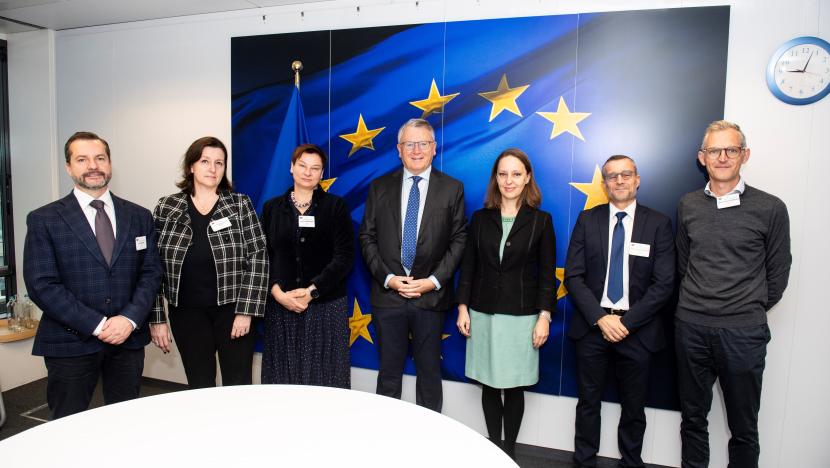IRU and EU Jobs and Social Rights Commissioner Nicolas Schmit met to discuss the recruitment, employment and integration practices for third-country drivers in the EU.
IRU, together with transport operators H.Essers and Samat and its Polish member ZMPD, met with European Commissioner Nicolas Schmit to discuss current experiences and practices regarding the employment of third-country drivers across the EU. The industry highlighted both positive and negative experiences, with a constructive focus on solutions to minimise negative cases.
The EU is already missing 500,000 professional drivers and it’s forecast to get much worse without significant action, in large part because less than 5% of drivers are under 25 years old. The ever-increasing shortage of drivers cannot be filled by local talent pools. Third-country drivers are needed to fill the gap.
IRU EU Advocacy Director Raluca Marian said, “Our focus first and foremost is to attract more local talent to the driver profession, including young people and women.
“However, given the extent of driver shortages in the EU, coupled with the fact that many drivers are nearing the age of retirement, we warmly welcome Commissioner Schmit’s interest in ensuring a positive experience for third-country drivers and finding solutions to support the harmonious application of EU transport rules. Collaboration between all stakeholders is crucial to prevent any abuses from taking place, both now and in the future.”

